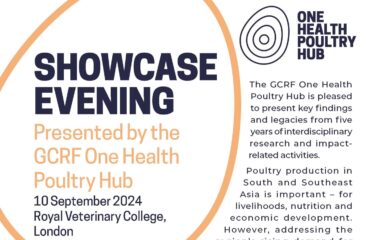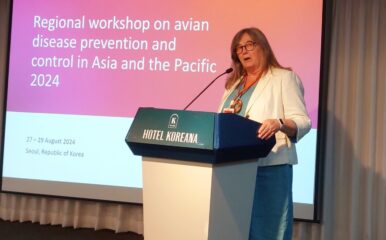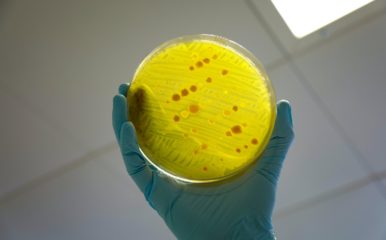
Hub conference held as COVID-19 shows relevance of zoonoses research
Published on 28/02/2020
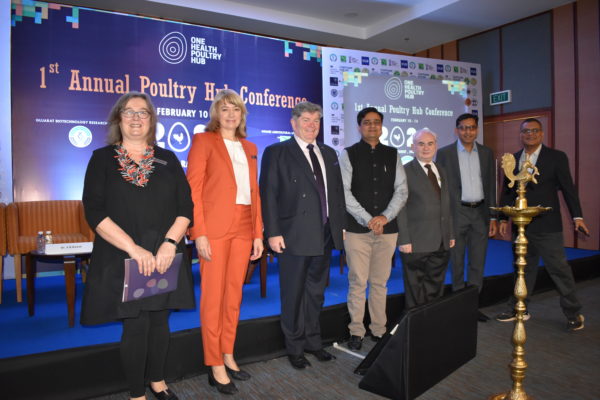
Eighty-eight Hub members from across eight countries – including Hub case countries Bangladesh, India, Sri Lanka and Vietnam – came together in Ahmedabad, India, earlier this month for the first annual One Health Poultry Hub Conference.
The event, jointly organised by Hub partners Gujarat Biotechnology Research Centre and Anand Agricultural University, saw discussions around the importance of One Health work for surveillance, identification, and prevention of spillover of infectious disease from animals to people. It could not have come at a more relevant juncture, with the outbreak of COVID-19 making headlines worldwide and illustrating the very critical nature of the Hub’s research and impact work around zoonoses.
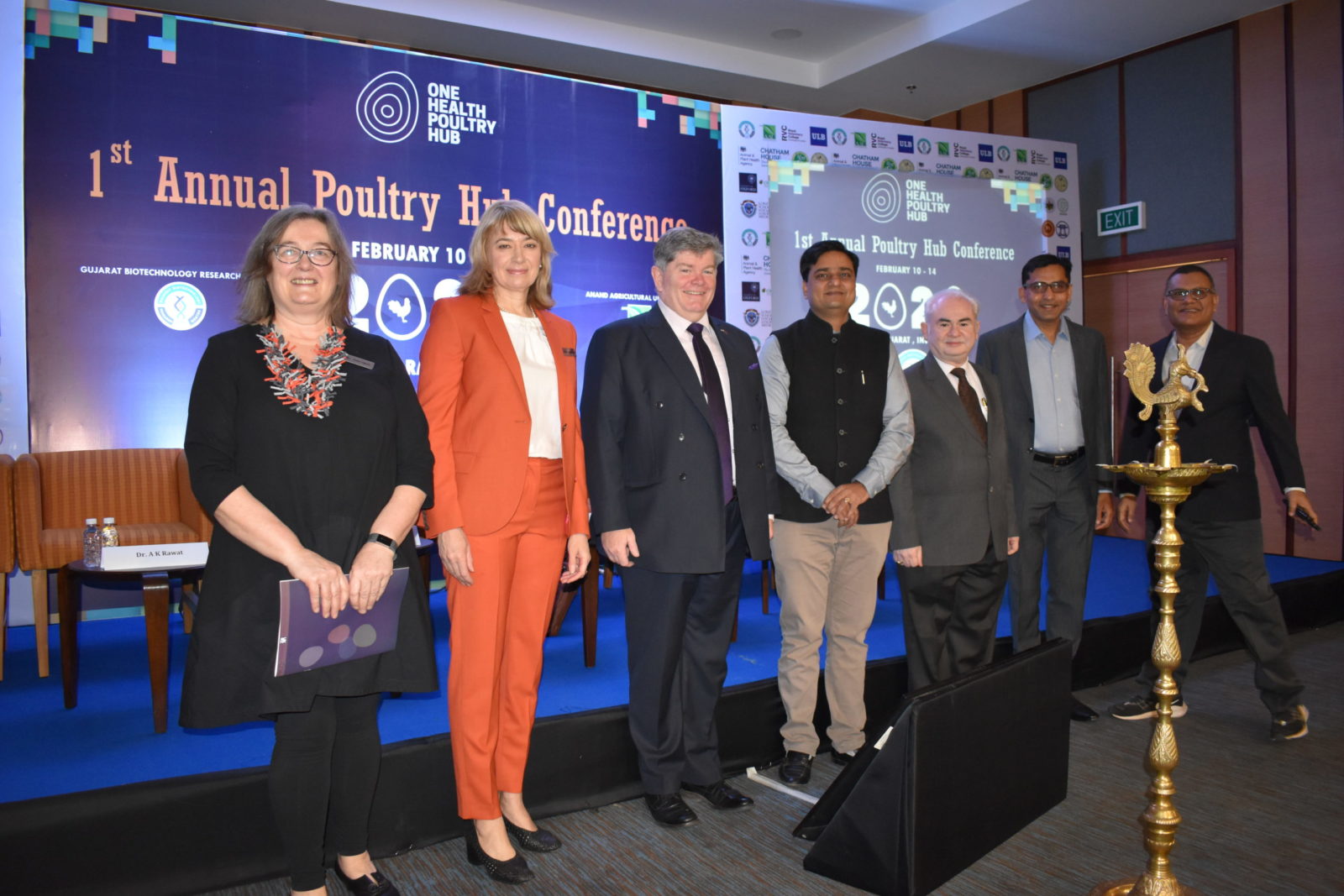
Professor Christine Middlemiss, Chief Veterinary Officer of the UK and chair of the Hub Advisory Board, and Peter Cook, the British Deputy High Commissioner to Gujarat and Rajasthan, spoke at the opening and participated in the conference as guests of honours. Dignitaries from Gujarat included Hareet Shukla, Secretary, Department of Science & Technology, Dr Naresh Kelawala, Vice-Chancellor, Kamdhenu University, and Dr AK Rawat, Advisor, Department of Biotechnology, Government of India.
The following keynote addresses were delivered:
- ‘The One Health Poultry Hub programme: its elegance, complexity and change-making potential’ by Professor Nitish Debnath.
- ‘Antimicrobial resistance in relation to antibiotic usage in the Indian poultry production system’ by Dr K.S. Prajapati.
- ‘Sustainable intensification of poultry: sounds good, but what might it mean in practice?’ by Professor Robyn Alders
- ‘One Health capacity building in the HORN project’ by Professor Matthew Baylis
- ‘Production and distribution networks: What do we know and why does it matter?’ by Dr Guillaume Fournie.
- ‘APHA International Reference Laboratory engagement and HPAI in South and South East Asia’ by Dr Ash Banyard.
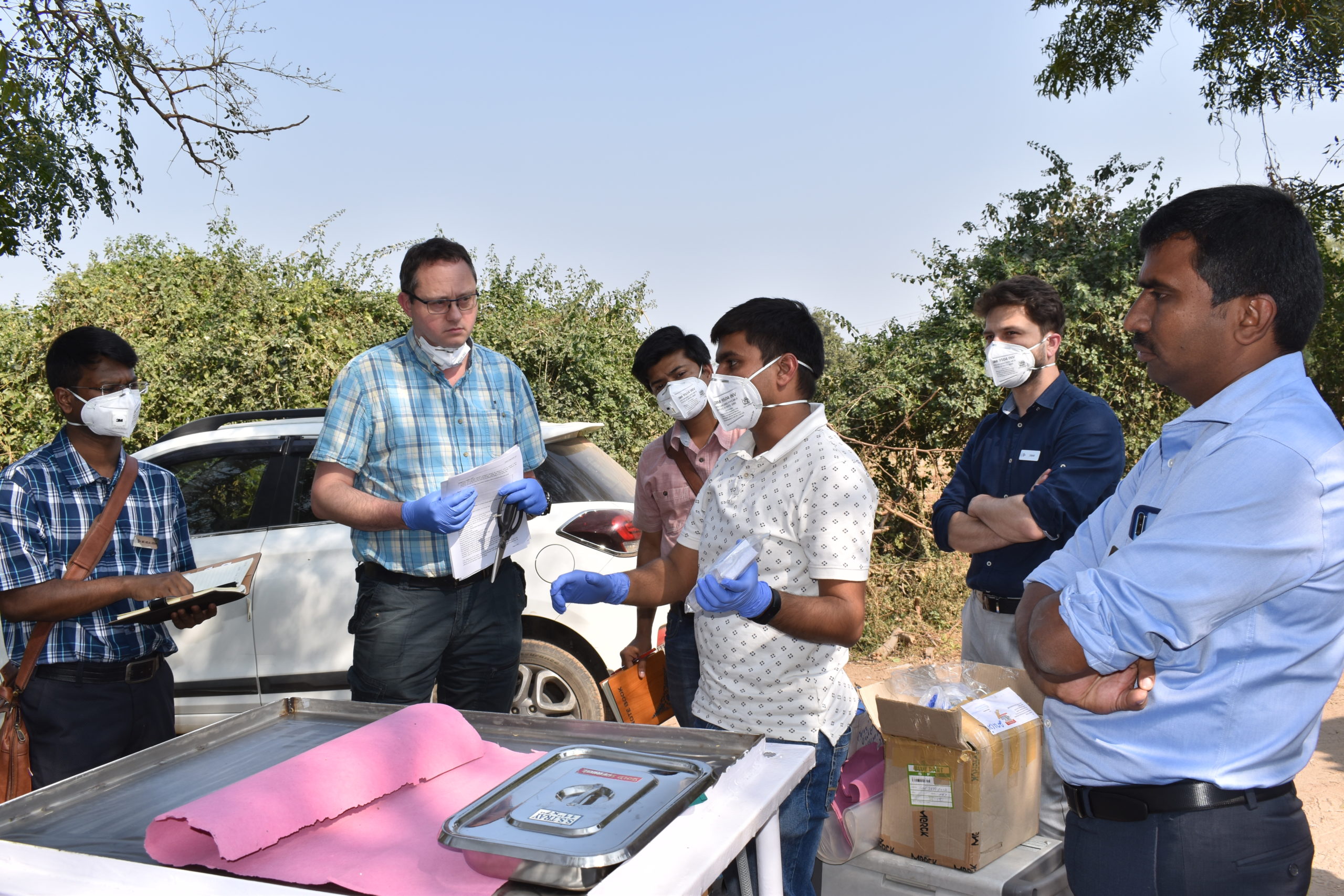
Participants attended sessions on Hub work ranging from lab techniques to achieving policy influence. A field trip to a chicken farm to pilot the protocols for the biological sampling of chickens and the environment was organised and considerable planning for the Hub’s programme of work for its second year was also achieved.
The conference demonstrated the real benefits to be had from face-to-face interaction.

